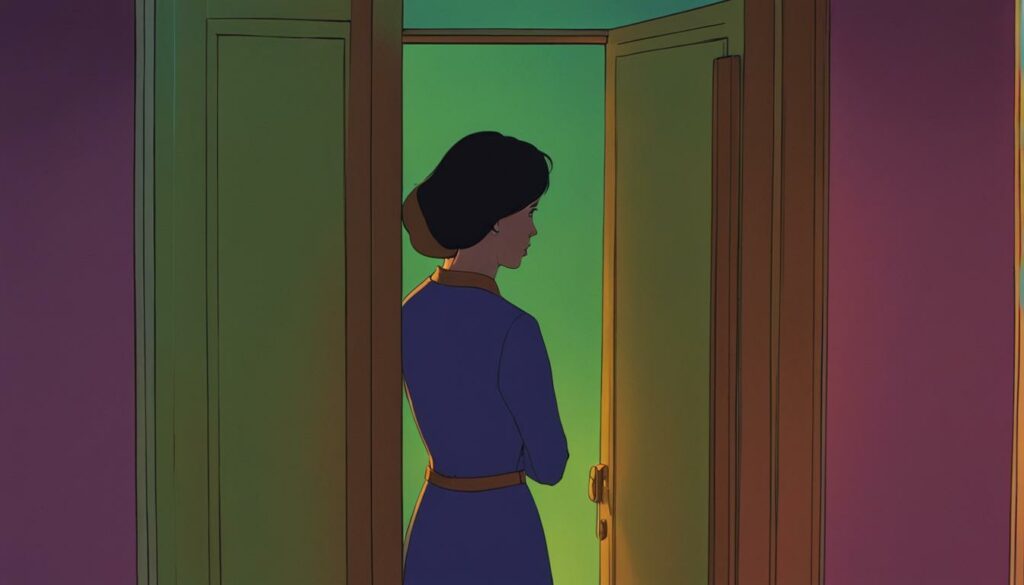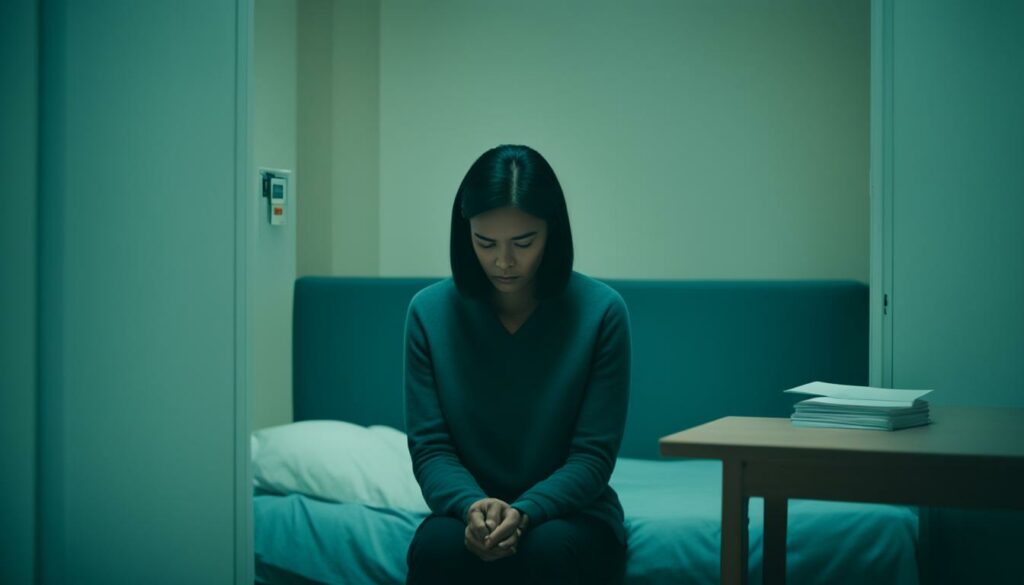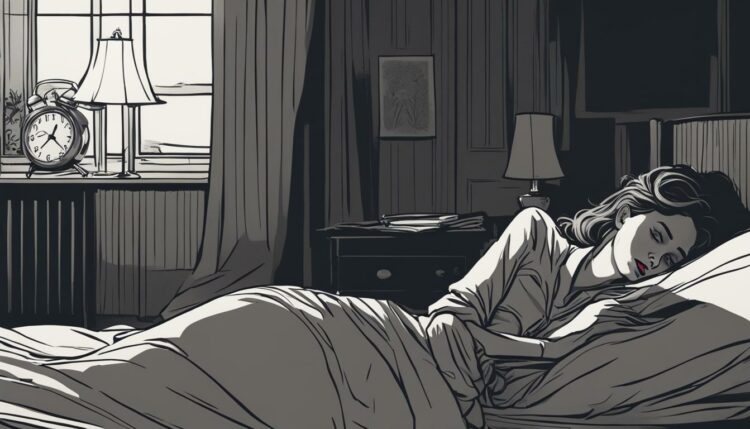Low libido in women, also known as women’s low sex drive, refers to a lack of sexual desire in females. It is a common issue that can affect women of all ages and can have a significant impact on their sexual satisfaction and overall well-being.
Female sexual dysfunction, including low libido, is a complex condition with various underlying causes.
Physical factors can contribute to low libido in women. Illnesses, such as chronic pain or fatigue, can affect sexual desire. Certain medications, such as antidepressants, can also have a negative impact on libido.
Additionally, lifestyle habits like excessive alcohol consumption and smoking can dampen arousal. Surgical procedures involving the breasts or genital tract can impact body image and sexual function. Fatigue, whether from caring for children or aging parents, illness, or surgery, can also contribute to low sex drive.
Hormonal changes play a significant role in women’s libido. During menopause, the decline in estrogen levels can lead to a decrease in interest in sex and dry vaginal tissues, making intercourse painful or uncomfortable.
Hormonal fluctuations during pregnancy and breastfeeding can also contribute to a low libido, coupled with the fatigue and body changes that come with these stages of life.
Psychological and emotional factors can have a profound influence on a woman’s sex drive. Mental health problems such as anxiety and depression can diminish sexual desire.
Stress, poor body image, low self-esteem, a history of abuse, and relationship issues can also contribute to low libido. Lack of emotional connection, unresolved conflicts, poor communication of sexual needs, and trust issues can significantly impact a woman’s desire for sex.
Key Takeaways:
- Low libido in women is a common issue that can have various causes.
- Physical factors such as illnesses, medications, fatigue, and hormonal changes can contribute to low libido.
- Hormonal changes, particularly during menopause, can greatly impact a woman’s sex drive.
- Psychological and emotional factors like stress, poor body image, and relationship issues can also influence a woman’s libido.
- Understanding the underlying causes of low libido is essential in finding effective solutions and improving women’s sexual health.
Physical Causes of Low Libido in Women
Several physical factors can contribute to low libido in women. Understanding these causes is essential in addressing and finding solutions to this issue. Some of the significant physical causes of low libido include:
1. Sexual problems:
Sexual problems such as pain during intercourse or difficulty reaching orgasm can significantly decrease sexual desire in women.
2. Medical Diseases:
Various medical conditions can impact a woman’s sex drive. Diseases such as arthritis, cancer, diabetes, high blood pressure, and neurological disorders can have an adverse effect on sexual desire.
3. Medications:
Certain medications, particularly antidepressants, have been associated with lower libido in women. It’s important to consult with a healthcare professional about potential side effects of medications on sexual health.
4. Lifestyle Habits:
Unhealthy lifestyle habits, including excessive alcohol consumption and smoking, can dampen arousal and affect sexual desire in women.
5. Surgical Procedures:
Surgical procedures involving the breasts or genital tract can impact a woman’s body image and sexual function, thereby affecting libido.
6. Fatigue:
Feeling tired and fatigued, whether from caring for children or aging parents, illness, or recovery from surgery, can significantly contribute to low sex drive in women.
Addressing these physical causes, as well as understanding and managing their impact, is crucial in improving women’s sexual health and overall well-being.
- “Sexual Problems in Women.” Mayo Clinic, Mayo Foundation for Medical Education and Research, 12 Dec. 2019, www.mayoclinic.org/diseases-conditions/sexual-dysfunction-in-women/symptoms-causes/syc-20378262.
- “Low Sexual Desire in Women.” Cleveland Clinic, Cleveland Clinic Foundation, 20 Nov. 2020, my.clevelandclinic.org/health/diseases/16933-female-sexual-dysfunction-low-sexual-desire-in-women.
Hormonal Changes and Low Libido in Women
Hormonal changes, particularly during menopause, can greatly impact a woman’s sex drive. As estrogen levels drop, women may experience a decrease in interest in sex and develop dry vaginal tissues, leading to painful or uncomfortable intercourse.
The hormonal fluctuations during pregnancy and breastfeeding can also contribute to a low libido, coupled with the fatigue and body changes that come with these stages of life.

Understanding the effects of hormonal changes on sexual desire is crucial in addressing low libido in women. Let’s explore how menopause, pregnancy, and breastfeeding impact a woman’s sex drive:
Menopause
During menopause, a woman’s ovaries gradually stop producing eggs and producing less estrogen and progesterone. This decline in hormone levels can lead to various physical and emotional changes, including a decrease in sexual desire.
Furthermore, the drop in estrogen can cause vaginal dryness, making sexual intercourse painful or uncomfortable.
Pregnancy
Pregnancy is a time of significant hormonal changes. At different stages of pregnancy, there are fluctuations in hormone levels, and these changes can affect a woman’s sex drive. Additionally, pregnancy can bring about physical discomfort, fatigue, and body image concerns, all of which can contribute to a low libido.
Breastfeeding
The hormonal fluctuations that occur during breastfeeding can also impact a woman’s sex drive. The release of the hormone prolactin during breastfeeding may suppress estrogen production, leading to decreased sexual desire.
Moreover, the demands of caring for a newborn and the physical changes that come with breastfeeding can contribute to fatigue and a reduced interest in sex.
It’s important for women experiencing low libido during menopause, pregnancy, or breastfeeding to understand that these hormonal changes are normal and temporary. Open communication with healthcare providers and partners can help address concerns and explore strategies to enhance sexual well-being during these stages of life.
Psychological and Emotional Causes of Low Libido in Women
Psychological and emotional factors can have a significant impact on a woman’s sex drive. Various elements, including mental health problems, stress, poor body image, low self-esteem, a history of abuse, and relationship issues, can contribute to decreased sexual desire.
Mental health problems: Conditions such as anxiety and depression can greatly diminish sexual desire in women. The impact of these mental health issues on libido should not be underestimated, as they can affect a woman’s overall well-being and quality of life.
Stress: Whether it stems from work, finances, or relationship difficulties, stress can take a toll on a woman’s libido. When the mind is preoccupied with stressors, it becomes challenging to fully engage in intimate experiences.
Poor body image and low self-esteem: Feelings of dissatisfaction with one’s body and a lack of confidence in one’s appearance can significantly affect a woman’s comfort and desire during sexual encounters. Negative self-perception can create barriers to experiencing pleasure and intimacy.
History of abuse: Women who have experienced physical or sexual abuse in the past may develop psychological barriers that impact their sexuality. Traumatic experiences can lead to a decreased desire for sex and can affect one’s ability to form healthy and trusting intimate relationships.
Relationship issues: Difficulties in a relationship can heavily influence a woman’s sexual desire. A lack of emotional connection, unresolved conflicts, poor communication of sexual needs, and trust issues can all contribute to low libido. When emotional intimacy is lacking, it can be challenging to cultivate a satisfying sexual relationship.
| Possible Causes | Effects on Libido |
|---|---|
| Mental health problems | Diminished sexual desire |
| Stress | Decreased interest in sex |
| Poor body image and low self-esteem | Affected confidence and comfort during sexual experiences |
| History of abuse | Decreased desire for sex and difficulties in forming healthy relationships |
| Relationship issues | Impact on emotional connection and sexual satisfaction |
It is essential to address these psychological and emotional factors when dealing with low libido in women. Seeking therapy or counseling can help women overcome these challenges and develop a healthier mindset towards sexuality and relationships. Taking the time to work through these issues can lead to an improvement in sexual desire and overall well-being.

Conclusion
Low libido in women is a complex issue that can significantly impact their overall well-being and intimate relationships. Fortunately, there are effective treatments available to address this common concern.
By understanding and addressing the physical, hormonal, psychological, and emotional factors contributing to low libido, women can take control of their sexual health and regain their sexual desire.
Seeking professional help from healthcare providers specializing in sexual health is essential in developing personalized treatment plans. These plans may include a combination of approaches such as counseling, hormone therapy, stress management techniques, and lifestyle changes.
It is important for women to remember that they are not alone in experiencing low libido, and with the right support and guidance, they can find solutions that work for their individual needs and circumstances.
Improving women’s sexual health is crucial for their overall well-being and quality of life. By addressing low libido and seeking appropriate treatment, women can experience a renewed sense of confidence, intimacy, and satisfaction in their relationships.
It is time to prioritize women’s sexual health and ensure that no woman suffers in silence due to low libido. With the right resources and support, women can achieve a fulfilling and enjoyable sex life.
FAQ
What are the causes of low libido in women?
Low libido in women can be caused by various factors, including physical factors such as illnesses, medications, fatigue, and hormonal changes. Psychological factors such as stress, anxiety, poor body image, and relationship issues can also contribute to low libido.
Can medical diseases affect a woman’s sex drive?
Yes, certain medical conditions like arthritis, cancer, diabetes, high blood pressure, and neurological diseases can affect a woman’s sex drive. Surgical procedures involving the breasts or genital tract can also impact sexual function.
Do medications play a role in low libido in women?
Yes, certain medications, especially antidepressants, have been linked to lower libido in women. It’s essential to discuss any concerns about medication side effects with a healthcare provider.
How do hormonal changes affect a woman’s sex drive?
Hormonal changes, particularly during menopause, can greatly impact a woman’s sex drive. As estrogen levels drop, women may experience a decrease in interest in sex and develop dry vaginal tissues, leading to painful or uncomfortable intercourse.
Can psychological and emotional factors contribute to low libido in women?
Yes, psychological and emotional factors can significantly influence a woman’s sex drive. Mental health problems like anxiety and depression, stress, poor body image, low self-esteem, a history of abuse, and relationship issues can all contribute to low libido.
How can women improve their sexual health and low libido?
Women can improve their sexual health and address low libido by seeking professional help from healthcare providers specializing in sexual health. These professionals can develop personalized treatment plans and provide guidance and support to help women regain sexual desire and strengthen their intimate relationships.
Source Links
- https://www.mayoclinic.org/diseases-conditions/low-sex-drive-in-women/symptoms-causes/syc-20374554
- https://www.associatesinwomenshealthcare.net/blog/not-interested-in-sex-8-reasons-for-a-low-libido-in-women/
- https://www.mayoclinichealthsystem.org/hometown-health/speaking-of-health/lets-talk-low-libido




